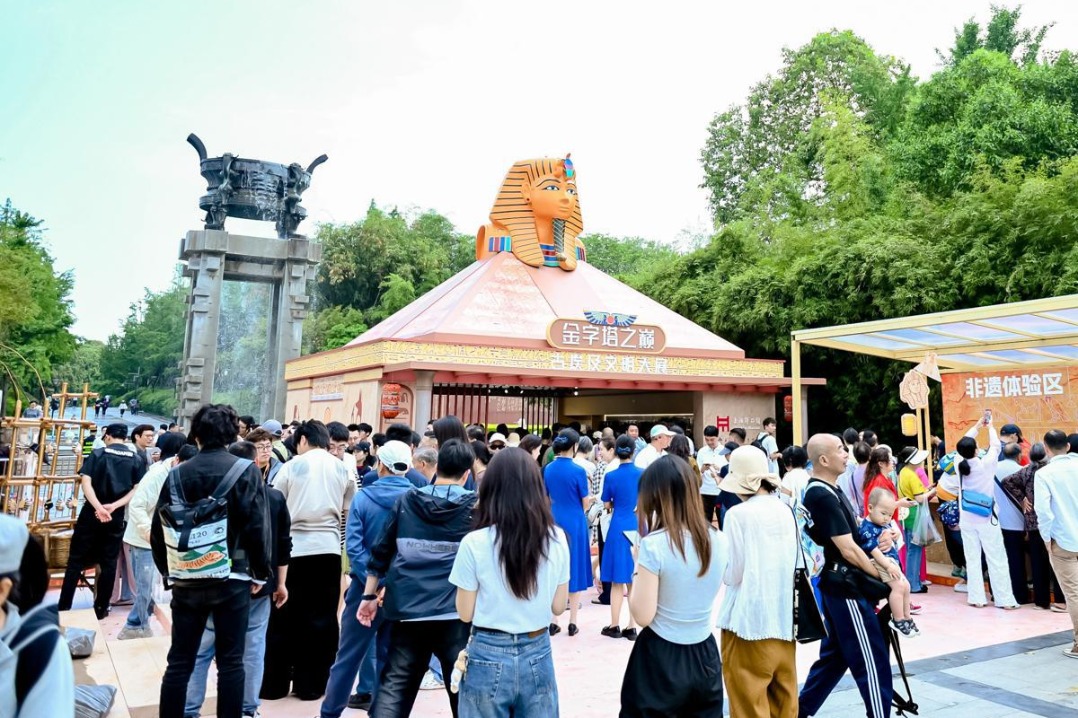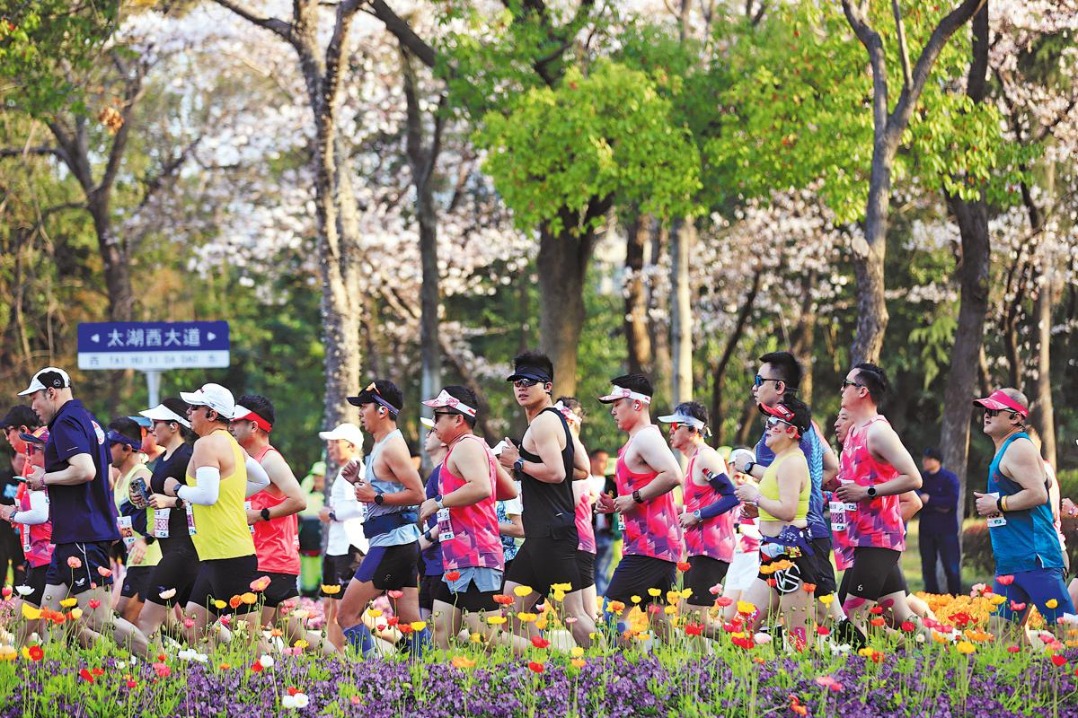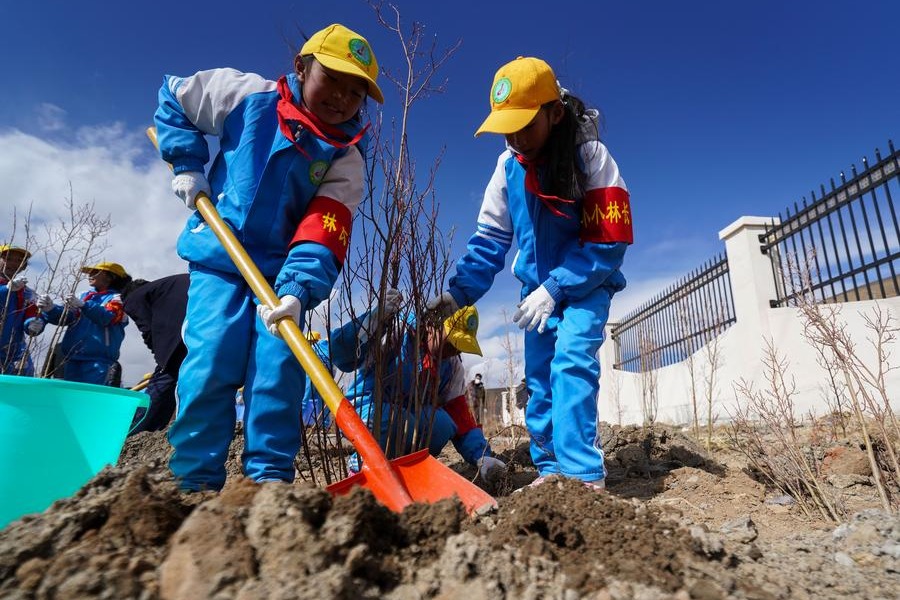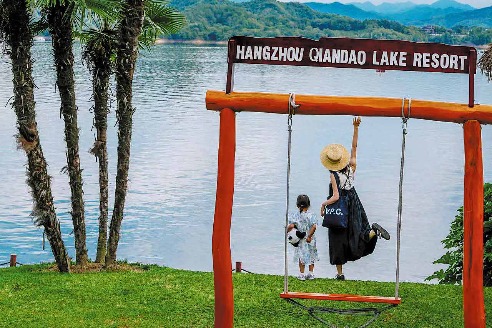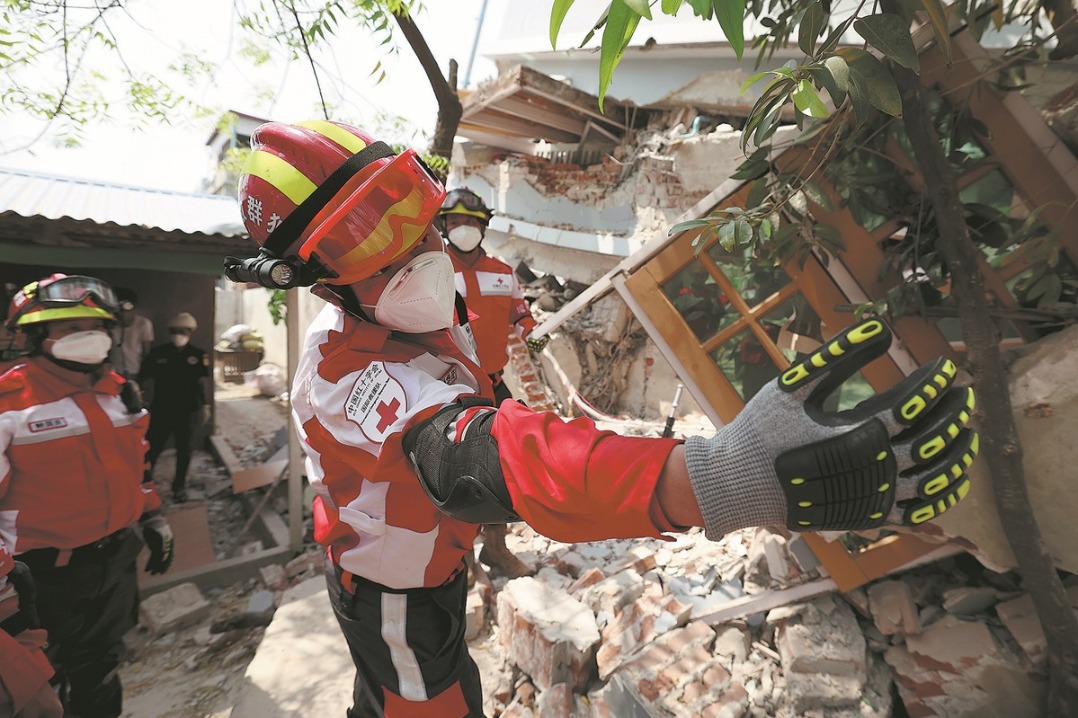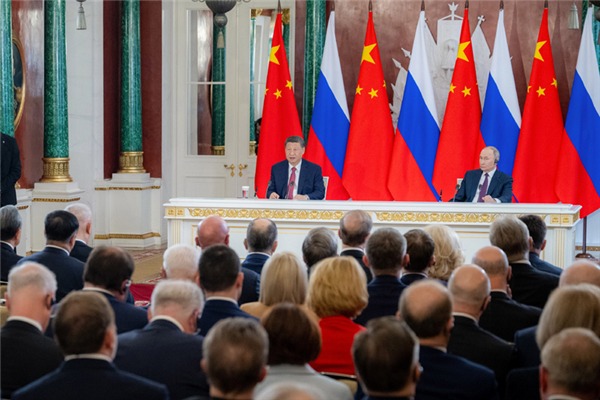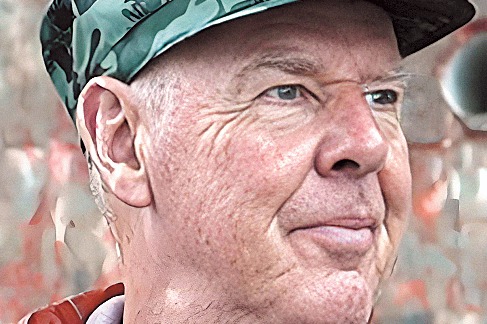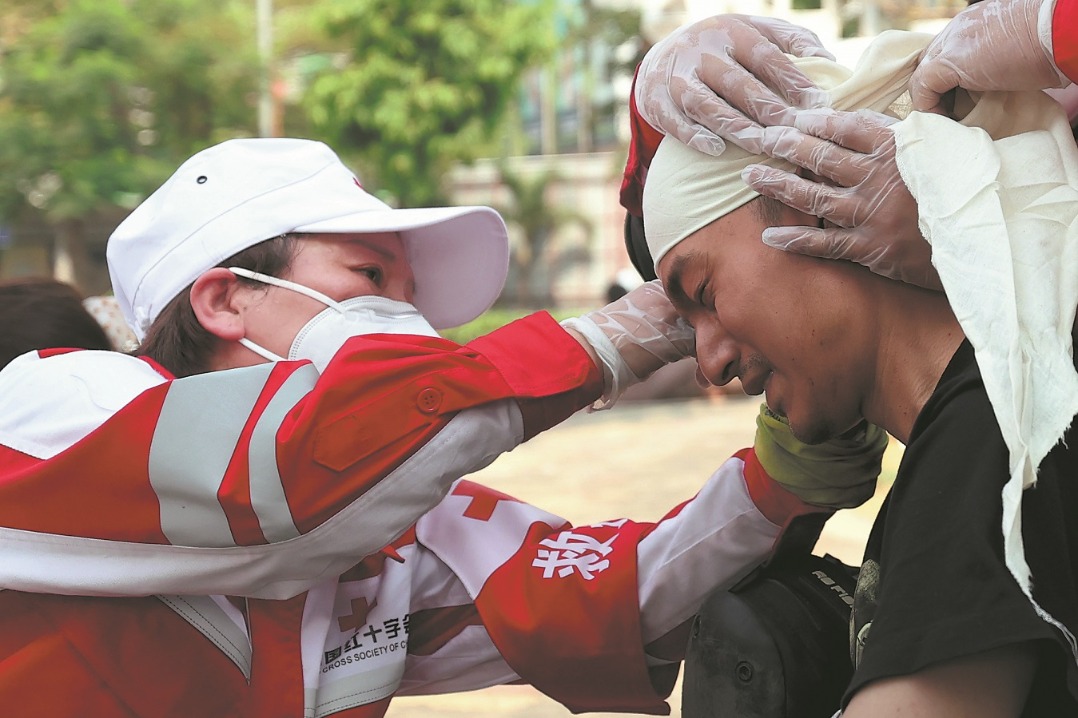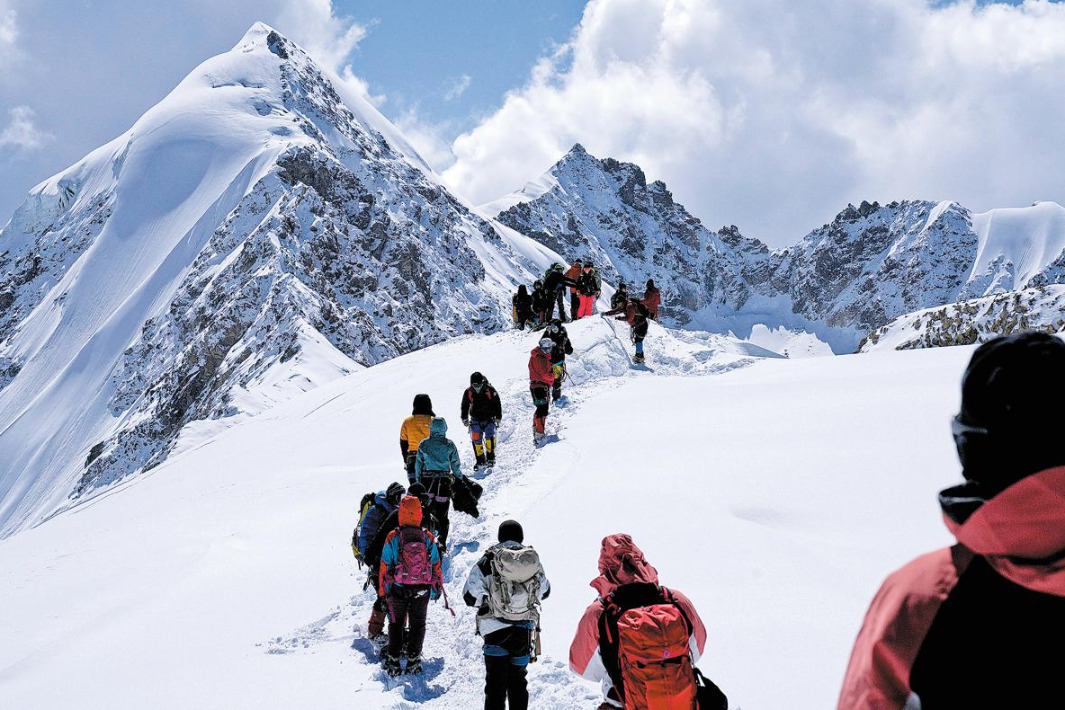China, Russia pledge to join forces against bullying, power politics

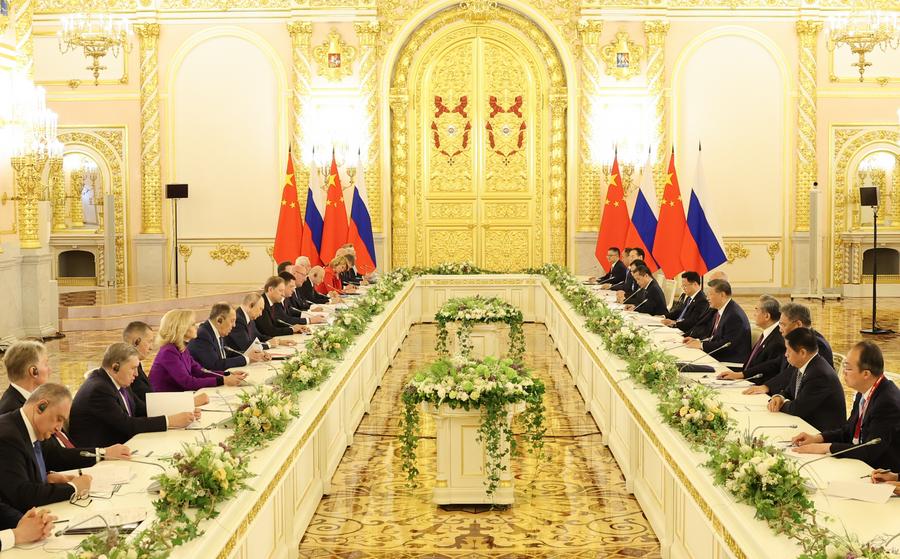
MOSCOW -- China will work with Russia to shoulder the special responsibilities entrusted by the times, Chinese President Xi Jinping told his Russian counterpart, Vladimir Putin, during their talks here on Thursday, as global uncertainties are exerting more pressure on the global economy.
Today, in the face of unilateralist countercurrents, bullying and acts of power politics, China is working with Russia to shoulder the special responsibilities of major countries and permanent members of the UN Security Council, Xi said.
Putin, for his part, criticized the imposition of high tariffs, saying it defies common sense, has no legal basis, and will only backfire.
In early April, the United States rolled out so-called "reciprocal" tariffs against almost all of its trading partners worldwide, triggering widespread opposition and concerns over a possible global economic recession. Many countries have vowed to retaliate.
On Thursday, the European Commission launched a public consultation targeting US imports worth 95 billion euros ($107.2 billion), warning that retaliatory measures could take effect if ongoing negotiations with the United States over the so-called "reciprocal" tariffs fail to yield an agreement.
A meeting on economic and trade affairs between Chinese Vice-Premier He Lifeng and US Treasury Secretary Scott Bessent will take place at the request of the US side, during He's May 9-12 visit to Switzerland. China's Commerce Ministry stressed that China will not seek to reach any agreement at the expense of sacrificing its principles or the cause of international fairness and justice.
Following their Thursday talks, Xi and Putin signed a joint statement on further deepening the China-Russia comprehensive strategic partnership of coordination for a new era. In the document, China and Russia voice firm opposition against unilateral and unlawful restrictive measures such as trade and financial restrictions.
The statement said that certain countries, under various pretexts, have arbitrarily imposed tariffs on their trading partners, seriously infringing upon the legitimate rights and interests of other countries, gravely violating WTO rules, severely undermining the rules-based multilateral trading system, and profoundly disrupting the stability of the global economic order.
The two countries condemned acts of bypassing the UN Security Council to implement measures that violate the UN Charter and international law, obstruct justice and violate the rules of the WTO.
They also pledged to continue to jointly deal with the downward pressure on the world economy, and facilitate the participation of more Global South countries in international and regional trade.
In today's world, China and Russia collaborate to establish a more just, sustainable and multipolar world order, said Vladimir Petrovskiy, chief researcher at the Institute of China and Contemporary Asia at the Russian Academy of Sciences.
To this end, China and Russia have been working closely in mechanisms like BRICS and the Shanghai Cooperation Organization, which are vital platforms for Global South countries to address development challenges and promote universal peace, he said.
Xi is in Moscow for a state visit to Russia and celebrations marking the 80th anniversary of the victory in the Soviet Union's Great Patriotic War. He and Putin have met over 40 times on various occasions.
On Thursday, Xi and Putin held back-to-back small-group and large-group talks, and also had a chat over tea at the presidential office in the Kremlin.
When the two presidents met the press following their talks, Xi described his talks with Putin as "in-depth, cordial and fruitful", adding that they reached many important new consensuses. Putin said Xi's visit is of great significance, and will inject strong momentum into the development of bilateral ties.
The two presidents also witnessed the exchange of over 20 bilateral cooperation documents, covering areas such as global strategic stability, upholding the authority of international law, investment protection, digital economy, quarantine and film cooperation.
In 2024, trade between China and Russia reached 244.8 billion dollars. China has remained Russia's largest trading partner for 15 consecutive years.
Russia-China relations are built on equality and mutual respect, Putin said during talks with Xi. It is neither directed against any third party nor swayed by any transient matters, Putin noted.
The political trust between Russia and China is unparalleled in the world, said Alexander V. Lomanov, a researcher at the Institute of World Economy and International Relations, Russian Academy of Sciences.
In this context, there is vast potential to further facilitate the movement not only of tourists, but also of experts, scientists and cultural figures between the two countries, he noted.
"There is much more we can do to deepen our exchanges," he said. "The more frequent these interactions become, the stronger our mutual understanding will grow."
















